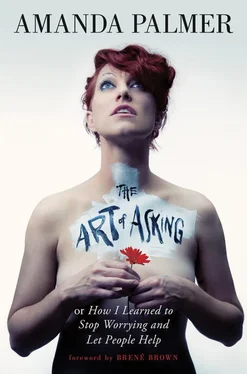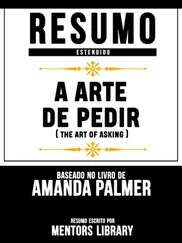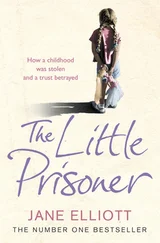Neil was holding my hand, casting no judgment.
No patronizing you shouldn’t have drunk so much, darling .
No chiding well, this is what you get for not having any dinner last night .
My head was plenty busy casting those judgments upon itself. He was just being sweet and helpful, holding my arm as I lurched towards a lamppost to get my balance and resist puking.
I realized, in that moment, that I wasn’t afraid to, quite literally, lean on him.
As if
perhaps
maybe
possibly
I wasn’t afraid to ask for his help.
He went down on one knee, in the snow. He didn’t have a ring, so he took out a Sharpie from his jacket and drew one on my finger.
At least I’d never lose it.
• • •
I loved being the center of attention when I was a kid, and I still do.
Sometimes it made wonderful things happen, like when I convinced the neighborhood girls to enact an a cappella production of Fiddler on the Roof on my back porch. (I played Tevye, obviously.) Sometimes it made terrible things happen, like when I wore a bra to school, Madonna-style, on the outside of my dress and got sent to the principal’s office. (The principal delivered a lecture that I would absolutely kill to have a recording of, just to be able to use the line you think you’re so special, Amanda, but you are not special in my techno-remix of “Creep” by Radiohead.)
As I moved through my life as a statue and later as a musician, I started to understand.
There’s a difference between wanting to be looked at and wanting to be seen.
When you are looked at, your eyes can stay blissfully closed. You suck energy, you steal the spotlight. When you are seen, your eyes must be open, as you are seeing and recognizing your witness. You accept energy and you generate energy. You create light.
One is exhibitionism, the other is connection.
Not everybody wants to be looked at.
Everybody wants to be seen.
• • •
Following the success of my TED talk, Microsoft called. They were offering to fly me to Seattle to speak to a group of women who worked there (apparently a whopping 16 percent of the employees at Microsoft were female).
I asked the speaker coordinator what I would be speaking about.
Whatever you want , she said.
I started to panic—I had no idea what I’d talk about. Crowdsourcing? Music? Surely I could wax poetic for a half hour about something . But these women were smart .
The Fraud Police were paying me a call.
For two months, I avoided coming up with an idea worth Microsoft-ing.
The night before the talk, I was pacing frantically around Jason Webley’s Seattle houseboat, still having written nothing, when it occurred to me: my mother . She’d been retired for a decade, but she’d worked as a freelancer for almost forty years, applying her math-whiz brain to the emerging field of computer programming.
Growing up, I had no idea what she actually did all day after she threw her heels in a bag and drove her car into rush-hour traffic. Whenever she started to explain to me what her job entailed, the words blurred into a wall of noise.
I hadn’t called my mother in a while. But now I had something to ask her. I needed her.
She talked for two hours straight while I furiously scribbled notes about what it was like for her to be one of the only female computer programmers at various companies around Boston in the sixties and seventies. I poured myself a glass of wine. On the other end of the phone, on the opposite side of the country, so did my mom. For the first time, in earnest, it was like we were drinking together. I listened to her stories about the sexism, the judgment, the weird harassment.
She told me a story about the guy she programmed with who got fired for looking at too much porn on his office computer.
In nineteen seventy??
Oh no no no. This was way later, when we were working on a Y2K conversion. There was Internet porn by then .
I couldn’t believe my mother had just said the words “Internet porn.”
I wanted more stories.
Well, you had to work harder than the men just to keep the job , she said matter-of-factly. And , she said, you know… you had to be perfect .
The way she said it hit a nerve.
Perfect? What kind of perfect?
Well, if a guy messed up a project, there was always another job waiting for him. But a woman? Forget it! You’d never get a job in that town again. And Boston was a small town. There were only a few of us. The men all stuck together .
She told me the story of the accountant, Jerry, who paid all the male freelancers on time but kept withholding her paycheck, claiming offhandedly that she “had a husband” and probably didn’t need the money as badly as the men did. She asked nicely for months, persistently, and still it didn’t arrive. One day she called him up ( at 6:02 , she said, when I knew the switchboard operator had gone home for the day and I would get him directly ). She said, Hi Jerry! Just wondering when you’re going to be able to process that check! It’s eight weeks late . And when Jerry made some grumblings about how they would send it out as soon as possible, my mother said, What are you having for dinner tonight, Jerry? Jerry said, Excuse me? My mother said, I need that money to buy groceries to feed my family. If you don’t cut my check, I’m coming to your house for dinner tonight. And I don’t like salmon. And I don’t like peas . The check was on her desk the next day.
I’d never known any of this stuff. But then again, I’d never asked. As we were wrapping up our two-hour conversation and were well into our second (third?) glasses of wine, she said, You know, Amanda, one thing always bothered me. Something you said when you were a teenager .
Oh, no. Whatever it was, it couldn’t be good. I was a terrible teenager, an explosion of hormones and nihilism.
Um… what?
She can do this imitation of me as a teenager that makes me want to crawl under a table. She did it now.
You said: “MOM, I’m a REAL ARTIST. You’re NOT.”
Oh, god.
Then she added, more kindly, You know you, Amanda, you were being a typical teenager .
I winced, and felt my neck tighten and my teeth grit down into mother-fight-or-flight mode.
She continued, But you know. You would say, “I’m an ARTIST… fuck you, Mom! What do you know?! You’re just a computer programmer.”
I had to admit… I could totally imagine myself saying that as a teenager. Maybe not the “fuck you, Mom” part. But still.
And then my mother said something that absolutely demolished my defensiveness. I don’t think, in all the years I’ve known her, that I’ve ever heard her sound more vulnerable.
You know, Amanda, it always bothered me. You can’t seemy art, but… I’m one of the best artists I know. It’s just… nobody could ever see the beautiful things I made. Because you couldn’t hang them in a gallery .
Then there was a pause.
I took in a deep breath.
God, Mom. Sorry .
And she laughed and her voice turned cheerful again.
Oh, don’t worry, sweetie. You were thirteen .
As I related this story the next morning to a small theater filled with two hundred Women Of Microsoft, I added a confession. In all my rock-and-roll years of running around, supporting people, advocating for women, giving all these strangers and fans permission to “embrace their inner fucking artist,” to express themselves fully, to look at their work and lives as beautiful, unique creative acts, I’d somehow excluded my own mother.
Читать дальше












